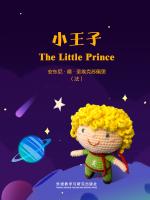The Little Prince
"The Little Prince," penned by the French author Antoine de Saint-Exupéry, is a timeless classic that transcends the boundaries of age, captivating both children and adults alike. With its poignant tales and profound philosophy, this novella has sold over 500 million copies worldwide, making it one of the most widely read books after the Bible.
The story revolves around a young prince who lives on a tiny asteroid called B-612. Accompanied by a unique rose, the prince becomes disillusioned with her demands and vanity, leading him to embark on an interstellar journey. During his travels, he visits various planets inhabited by eccentric characters, including a king, a vain man, a drunkard, a businessman, a lamplighter, and a geographer, each representing different facets of human folly and absurdity.
Upon reaching Earth, the Little Prince encounters a fox in the Sahara Desert. Through their bond, the fox teaches the prince the secret of "taming" and the importance of invisible bonds created through time and effort. The fox explains, "It is only with the heart that one can see rightly; what is essential is invisible to the eye." This revelation helps the Little Prince realize the true value of his rose and the love he shares with her, despite her apparent ordinary nature.
As a reader, I was deeply moved by the simplicity yet profoundness of "The Little Prince." The story serves as a poignant reminder of the innocence we all possess as children and the responsibilities we acquire as adults. The Little Prince's journey is not just about physical travel but also about emotional and spiritual growth. He learns that love, responsibility, and friendship are not measurable by material wealth or status but by the invisible bonds we create with others.
The book's themes of love, loss, and human nature resonate strongly with me. The Little Prince's rose, though seemingly ordinary, becomes extraordinary because of the time and effort the prince invests in her. This underscores the idea that relationships and experiences, not material possessions, give meaning to our lives.
Antoine de Saint-Exupéry's writing style is both whimsical and philosophical, weaving a tale that is both enchanting and thought-provoking. The illustrations, though simple, add to the book's charm, bringing the story to life in a way that words alone cannot.
In conclusion, "The Little Prince" is more than just a children's book; it is a profound exploration of human nature and the essence of life. It reminds us to cherish our relationships, stay true to our inner child, and never lose sight of what is truly important. As the Little Prince says, "You become responsible, forever, for what you have tamed." This novella is a timeless treasure that will continue to inspire and enchant readers for generations to come.



 京公网安备 11010802032529号
京公网安备 11010802032529号